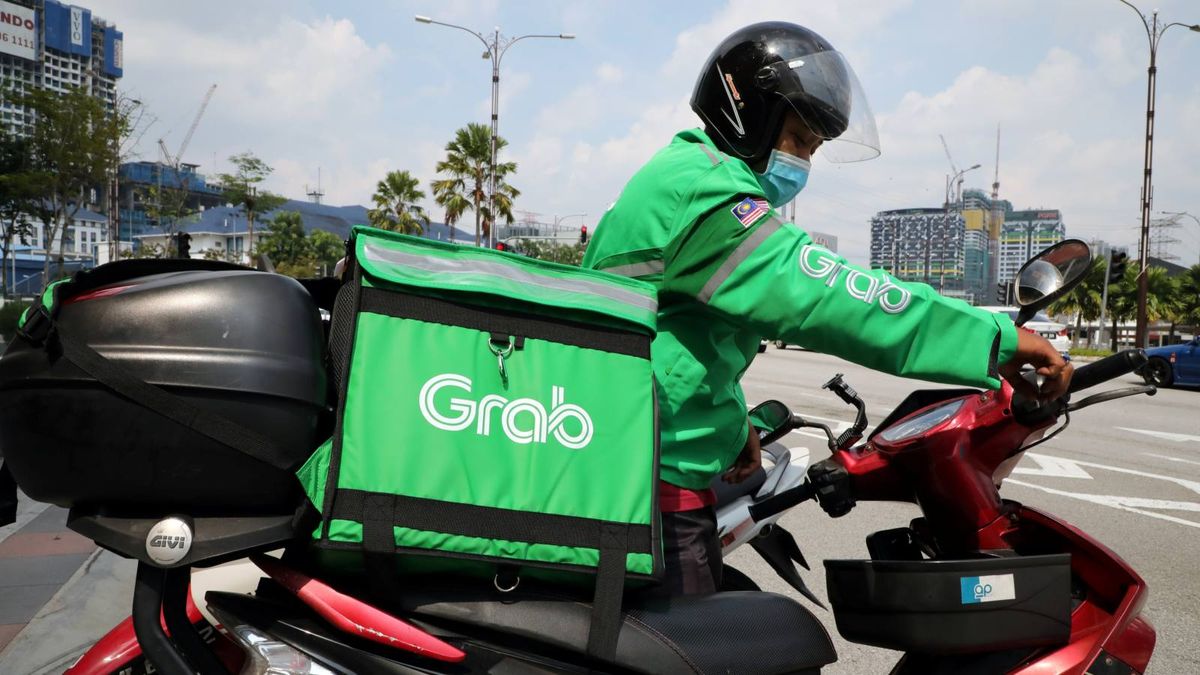Alibaba preparing US$3 billion investment in ride-hailing startup Grab

A few minutes every morning is all you need.
Stay up to date on the world's Headlines and Human Stories. It's fun, it's factual, it's fluff-free.
Alibaba’s investment comes as ride-hailing apps across the world, as with all other industries, have been forced to adapt to the new challenges of the coronavirus pandemic.
Chinese giant Alibaba Group Holding Ltd. is reportedly in talks to invest a US$3 billion sum in premier South East-Asian ride-hailing firm, Grab Holdings Inc.
Initially founded in Singapore, Grab, much like Uber and Lyft in the United States, offers both ride-hailing and food delivery services to customers across Southeast Asia, including Malaysia, Indonesia, Thailand and the Philippines.
Prior to Alibaba’s reported investment, Grab was valued at between US$10-14 billion. Similar to its American cousins, Grab has also attracted investment from some of the biggest investment groups in the world, including Masayoshi Son’s SoftBank Group Corp. and, now, Chinese giant Alibaba.
Alibaba’s investment comes as ride-hailing apps across the world, as with all other industries, have been forced to adapt to the new challenges of the coronavirus pandemic.
Alibaba’s multibillion dollar investment, shows that the industry has successfully weathered the coronavirus storm and is once again attracting investment from significant global players.
Grab’s growth
Grab was co-founded by Singaporean and Harvard-educated Anthony Tan in 2012 and quickly expanded from Singapore to become a dominant player in the Southeast Asian ride-hailing market, raising billions from investors in the process and challenging international groups like Uber.
By 2017, the ride-hailing platform had offered some one billion rides across Southeast Asia, with Tan hailing the achievement as “great testament to the strength of Grab’s business.”
In March 2018, Grab acquired Uber’s operations in Southeast Asia, with the San Francisco-based firm ceding its share of a market containing hundreds of millions of customers for a 28% stake in the burgeoning Singapore-based competitor.
Like Uber, Grab also expanded into the food delivery market. Grab executives are pinning the future success of their business on this market, which has witnessed explosive growth since its founding in early 2018.
Lim Kell Jay, an executive of GrabFood, has said that Grab’s transition to this market was a straightforward process.
Starting off as a ride-hailing business, Grab “built up this user base, and saw the opportunity to provide more services to users,” Lim explained. From this point on, Grab gets to “engage customers more, and they will transact more on our platform.”
Grab’s success in fending off global competitors like Uber and regional rivals like Gojek has seen the Singaporean multinational firm attract investment from significant world players.
In 2019, Masayoshi Son’s SoftBank announced a US$2 billion investment in Grab over a five-year period.
In the summer of 2020, an additional US$200 million in funding from South Korean private equity firm Stic Investments was also announced.
In total, since 2013, the successful ride-hailing and now food-delivery platform has raised some US$10 billion in funding and has continued to extend its ambitions further. The company, originally founded as GrabTaxi in 2012, is also expanding into “fintech,” particularly through its GrabPay payment system.
Coronavirus realities
Despite its meteoric success in recent years, Grab, like most other industries, was forced to contend with the insecurity caused by the coronavirus pandemic.
According to Russell Cohen, Grab’s group managing director of operations, Grab’s leadership group met “at the start of the crisis and we could see, particularly in Southeast Asia, that the scale of the challenge was so immense.”
Grab reported that its ride-hailing drivers had suffered a double-digit drop in their incomes in April 2020 when compared with October 2019, with demand plummeting as virus conditions made travel unsafe.
Grab also cut some 360 employees, or about 5% of its total workforce, in order to cut costs to better cope with the coronavirus-induced crash in demand.
Despite these challenges, Grab managed to successfully adapt to the new pandemic environment. Some 149,000 ride-hailing drivers began to perform on-demand deliveries for the first time on Grab’s platform, as ride-hailing demand dropped but demand for deliveries from local businesses and restaurants grew.
In total, around 80,000 small businesses across Grab’s area of operations in Southeast Asia signed up to make deliveries on the platform, further expanding Grab’s business into the realm of deliveries and away from its traditional use as a ride-hailing platform.
Grab also assisted these businesses, many of which had no prior experience in selling their products online, in adapting to the new normal. According to Cohen, this was “a massive sector of the Southeast Asian economy that effectively digitized within a matter of weeks.”
It’s unsurprising that Chinese giant Alibaba subsequently took interest in the company. The terms of Alibaba’s reported investment state that some US$3 billion will be poured into Grab Holdings Inc. with a portion of the money being used to acquire Uber’s remaining 28% stake in the company, effectively taking over Uber’s share of Grab’s market.
Jack Ma’s Alibaba has been busy with investments elsewhere. Chinese e-commerce group YTO Group Corporation also reportedly secured nearly US$1 billion in funding from the giant, in what was seen as a push for YTO and Alibaba to expand YTO’s logistics operations internationally.
Alibaba’s investment in Grab may also have come as a result of Alibaba’s interest in the fintech field, which Grab has expanded into as its business has matured. Alipay parent Ant Group, whose fintech service boasts some 1.3 billion annual active users worldwide and is closely backed by Alibaba, is reportedly aiming to go public this year, targeting a valuation of some US$200 billion.
Alibaba’s multibillion dollar investment in Grab is but the latest in a string of high-profile injections into the dominant Southeast Asian ride-hailing platform and a sign that greater things may yet be still to come.
Have a tip or story? Get in touch with our reporters at tips@themilsource.com




Comments ()